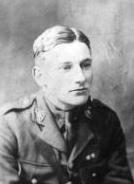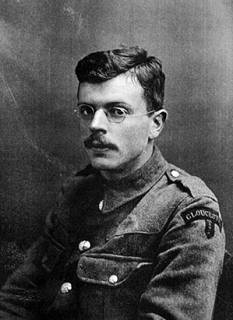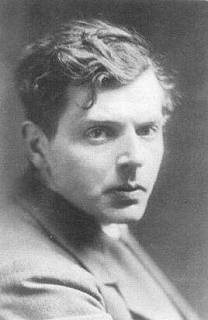|
<< -- 10 -- Roderic Dunnett BEHIND THE LINES

If we have Sassoon to thank for beefing up Owen's poetry -- they
met and compared notes at Craiglockhart hospital in Edinburgh : Owen's poetry
was transformed -- one of the most enabling literary figures after the war
was Edmund Blunden [read a biography].

Edmund Blunden. Photo: The Imperial War Museum, London
|
It was Blunden who brought Ivor Gurney's later poetry to a new audience,
publishing a first version in 1954 which (like P J Kavanagh's and George
Walter's more recently) declined to smooth away the rough, vigorous 'earthiness'
of Gurney's craggier post-Whitman, post-Hopkins, incipiently Modernist
language, to which the present Poet Laureate, Andrew Motion (amongst others)
has rightly drawn attention.

Ivor Gurney. Photo: The Imperial War Museum, London
|
As R K R Thornton, Professor of English at Birmingham, editor of Gurney's
Collected Letters and Walter's co-editor on several volumes of his
poetry, points out, 'War poetry permits poets to go out on a limb :
it fires them off in all directions, like sparklers' (or Verey lights).
'Although Gurney admired and befriended the "Georgian" poets,
knew Masefield and was in touch with others like Robert Bridges, he wasn't
stuck with having to please a particular audience; nor had he a Sassoon
to calm down his extravagances. He began as a fairly conventional poet,
but by around 1918 acquired an entirely new voice : after his two successful
war collections nobody wanted Gurney's next offerings; and that left
him free to charge off and pursue his own line.'

Ivor Gurney in 1920. Photo: Ivor Gurney Society/Gurney Archive, City of Gloucester Library
|
Gurney, whose Ministry of Pensions document -- as Anthony Boden, prime
mover of the Ivor Gurney Society and editor of another book of Gurney letters,
points out -- indicates he suffered from 'manic depressive pychosis,
exacerbated by but not caused by war service', was still writing and
(to a degree) composing in Stone House Asylum, Dartford.
Continue >>
Copyright © 26 December 2002
Roderic Dunnett, Malvern, Worcestershire, UK

|

